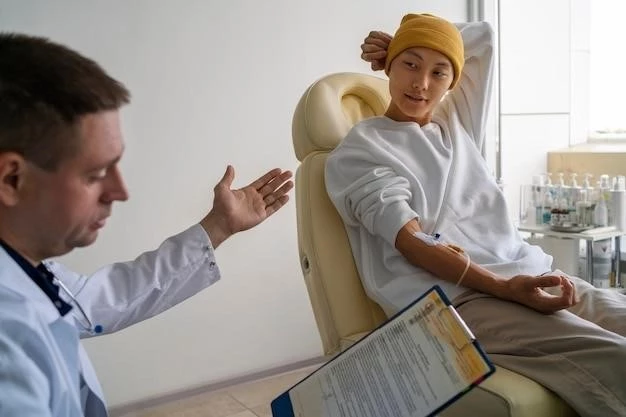Elejalde Syndrome⁚ An In-depth Exploration
Understanding Elejalde Syndrome
Elejalde Syndrome is a rare congenital disorder characterized by hepatic fibrosis, intellectual disability, hernia, dysmorphic features, and metabolic dysfunction. Patients may present with liver scarring, hepatocellular carcinoma, developmental delay, short stature, neurological impairment, and facial anomalies. The syndrome diagnosis involves recognizing the clinical manifestations, while identifying the genetic mutation through genetic testing is crucial for proper management. With the right medical approach, supportive care, and a multidisciplinary team, individuals with Elejalde Syndrome can receive comprehensive medical management. Ongoing research studies are essential to further understand this complex genetic condition, and genetic counseling is vital for affected families to navigate this condition effectively.
Clinical Manifestations of Elejalde Syndrome
Patients with Elejalde Syndrome present with a range of dysmorphic features, intellectual disability, short stature, developmental delay, and neurological impairment. These individuals may also experience facial anomalies, such as a prominent forehead or a flattened nasal bridge. Recognizing these clinical manifestations is crucial for early diagnosis and intervention. A multidisciplinary approach involving geneticists, hepatologists, and neurologists is essential for providing comprehensive care to address the diverse symptoms associated with Elejalde Syndrome. By understanding the full spectrum of clinical manifestations, healthcare professionals can tailor medical management strategies to improve the quality of life for individuals affected by this rare genetic condition.
Dysmorphic Features
Individuals with Elejalde Syndrome may exhibit dysmorphic features including a prominent forehead, flat nasal bridge, low-set ears, a wide mouth, and protruding tongue. These distinctive facial characteristics can aid in the clinical diagnosis of the syndrome. The presence of dysmorphic features is often apparent from early childhood and can guide healthcare providers towards genetic testing and specialized medical management. Understanding and documenting these unique facial anomalies are essential for a comprehensive assessment and ongoing care of individuals with Elejalde Syndrome.
Intellectual Disability
Intellectual disability is a common manifestation of Elejalde Syndrome, characterized by limitations in intellectual functioning and adaptive behaviors. Individuals affected may have challenges in learning, communication, social interaction, and daily living skills. The degree of intellectual disability can vary, ranging from mild to severe. Early recognition of intellectual disability is crucial for implementing tailored educational and support programs. A multidisciplinary approach involving educational specialists, therapists, and caregivers is essential to enhance the quality of life and maximize the potential of individuals with Elejalde Syndrome.
Short Stature
Short stature is a notable clinical feature in individuals with Elejalde Syndrome. Patients typically exhibit growth retardation leading to below-average height compared to their peers. This physical characteristic is often apparent in early childhood and may persist throughout life. Monitoring growth parameters and addressing nutritional needs are essential in the management of individuals with Elejalde Syndrome who present with short stature. Collaborating with endocrinologists and nutritionists can help optimize growth potential and overall health outcomes for affected individuals.
Developmental Delay
Developmental delay is a common aspect of Elejalde Syndrome, where affected individuals may achieve developmental milestones at a slower rate compared to their peers. This delay can impact motor skills, language acquisition, and cognitive development. Early identification through developmental assessments is crucial for initiating appropriate early intervention services. Collaborating with pediatricians, therapists, and educators can help create individualized developmental plans to support the progress of individuals with Elejalde Syndrome. Timely interventions and consistent monitoring play key roles in optimizing developmental outcomes for these individuals.
Neurological Impairment
Neurological impairment is a key feature of Elejalde Syndrome, encompassing a spectrum of challenges including motor coordination difficulties, seizures, and sensory processing issues. These neurological manifestations can significantly impact daily functioning and quality of life for affected individuals. Collaborating with neurologists, occupational therapists, and speech therapists is essential for comprehensive management. Tailored interventions focusing on enhancing motor skills, seizure control, and sensory integration can help individuals with Elejalde Syndrome improve their neurological function and overall well-being. Regular neurological assessments and therapeutic interventions are vital components of the multidisciplinary care approach for these individuals.
Diagnosis and Genetic Mutation in Elejalde Syndrome
Diagnosing Elejalde Syndrome involves recognizing the constellation of clinical manifestations such as hepatic fibrosis, dysmorphic features, and developmental delays. Genetic testing plays a pivotal role in identifying the specific genetic mutation responsible for the syndrome. Targeted genetic analysis can confirm the diagnosis and guide tailored medical management. Understanding the genetic basis of Elejalde Syndrome is essential for providing personalized care and family counseling. By elucidating the genetic mutation associated with the syndrome, healthcare professionals can offer precise interventions and prognostic information to individuals and families affected by Elejalde Syndrome.
Syndrome Diagnosis
The diagnosis of Elejalde Syndrome is established through a comprehensive assessment of clinical features such as hepatic fibrosis, intellectual disability, and facial anomalies. Healthcare providers conduct thorough physical examinations, imaging studies, and genetic testing to confirm the presence of specific characteristics associated with the syndrome. By integrating these diagnostic components, medical professionals can accurately identify individuals with Elejalde Syndrome and differentiate it from other genetic conditions with overlapping symptoms. Timely and precise syndrome diagnosis is crucial for initiating appropriate medical interventions and support services tailored to the individual needs of patients with Elejalde Syndrome.
Genetic Mutation Identification
Identifying the specific genetic mutation responsible for Elejalde Syndrome is crucial for confirming the diagnosis and understanding the underlying cause of the condition. Geneticists utilize advanced molecular techniques such as sequencing to pinpoint the genetic alteration associated with the syndrome. Unraveling the genetic mutation provides valuable insights into the pathophysiology of the disorder and facilitates personalized medical management strategies. By determining the exact genetic anomaly, healthcare providers can offer targeted interventions, prognostic information, and genetic counseling to individuals and families affected by Elejalde Syndrome.
Complications Associated with Elejalde Syndrome
Individuals with Elejalde Syndrome are at risk of various complications, including hepatic fibrosis, liver scarring, metabolic dysfunction, and the development of hepatocellular carcinoma. Hepatic fibrosis can progress to cirrhosis and impact liver function. Liver scarring may lead to portal hypertension and liver failure. Metabolic dysfunction can affect energy metabolism and nutrient utilization. Additionally, the increased risk of hepatocellular carcinoma necessitates regular monitoring. Addressing these complications through proactive medical management is essential to mitigate their impact on the health and well-being of individuals with Elejalde Syndrome.
Hepatic Fibrosis
Hepatic fibrosis is a significant complication observed in individuals with Elejalde Syndrome, characterized by the excessive accumulation of fibrous tissue in the liver. This condition can progress to cirrhosis and compromise liver function. Hepatic fibrosis impacts the liver’s ability to detoxify substances and produce essential proteins, leading to further complications such as portal hypertension and liver failure. Regular monitoring of liver function and imaging studies is crucial to assess the progression of fibrosis and initiate targeted interventions to preserve liver health. Collaborating with hepatologists for specialized care can help manage hepatic fibrosis effectively in individuals with Elejalde Syndrome.
Liver Scarring
Liver scarring, often a consequence of advanced hepatic fibrosis in Elejalde Syndrome, involves the replacement of healthy liver tissue with fibrous scar tissue. This scarring can impair liver function, leading to complications such as portal hypertension, impaired blood flow, and liver failure. Monitoring liver health through imaging studies and liver function tests is essential to assess the extent of scarring and guide treatment decisions. Management strategies may include medications to reduce fibrosis progression, lifestyle modifications, and interventions to address associated liver complications. Collaborating with hepatologists and liver specialists can help optimize the care and outcomes for individuals with Elejalde Syndrome.

Metabolic Dysfunction
Metabolic dysfunction is a significant concern in Elejalde Syndrome, impacting energy metabolism, nutrient processing, and overall metabolic balance. Individuals with the syndrome may experience challenges in regulating glucose levels, processing fats, and maintaining proper energy utilization. Metabolic dysfunction can lead to complications such as insulin resistance, dyslipidemia, and obesity. Monitoring metabolic parameters through blood tests and dietary assessments is crucial for early detection and management of metabolic issues. Collaborating with endocrinologists, nutritionists, and metabolic specialists can help optimize metabolic health and reduce the risk of associated complications in individuals with Elejalde Syndrome.
Hepatocellular Carcinoma
Individuals with Elejalde Syndrome face an elevated risk of developing hepatocellular carcinoma, a primary liver cancer originating from hepatocytes. The underlying hepatic fibrosis and liver scarring increase the susceptibility to hepatocellular carcinoma. Regular monitoring through imaging studies and tumor markers is paramount for early detection and timely intervention. Treatment may involve surgery, chemotherapy, or liver transplantation, depending on the cancer stage and individual health status. Collaborating with oncologists and liver specialists is essential in managing hepatocellular carcinoma in individuals with Elejalde Syndrome, focusing on optimizing outcomes and improving long-term survival rates.
Medical Management of Elejalde Syndrome
The medical management of Elejalde Syndrome involves a comprehensive approach aimed at addressing varied clinical manifestations and complications associated with the condition. Symptomatic treatment strategies may include interventions to manage hepatic fibrosis, support liver function, address metabolic dysfunction, and enhance neurodevelopmental outcomes. Regular monitoring of liver health, metabolic parameters, and neurological function is essential to track disease progression and optimize therapeutic interventions. Collaborating with a multidisciplinary team of healthcare professionals, including hepatologists, geneticists, therapists, and caregivers, allows for individualized care plans tailored to the specific needs of patients with Elejalde Syndrome. Implementing supportive care measures and ongoing medical supervision are key components of managing Elejalde Syndrome effectively.
Supportive Care
Supportive care plays a crucial role in the management of Elejalde Syndrome, aiming to enhance the quality of life and well-being of affected individuals. Supportive interventions may include nutritional support to address growth retardation and metabolic issues, behavioral therapies to aid in intellectual disability, and physical and occupational therapies to improve motor skills and overall functioning. Additionally, psychological support for patients and families, educational resources, and social services can contribute to a holistic approach in managing the challenges associated with Elejalde Syndrome. Implementing a comprehensive supportive care plan customized to the individual’s needs can positively impact their day-to-day life and long-term outcomes.
Multidisciplinary Approach
The management of Elejalde Syndrome necessitates a multidisciplinary approach involving a team of healthcare professionals from various specialties. Collaboration among geneticists, hepatologists, neurologists, endocrinologists, therapists, and educators is vital in addressing the complex needs of individuals with the syndrome. This collaborative model allows for a comprehensive evaluation, individualized treatment plans, and coordinated care that addresses the diverse clinical manifestations and complications of Elejalde Syndrome. A multidisciplinary approach enables holistic management, optimal utilization of resources, and the delivery of integrated care that focuses on improving outcomes and enhancing the quality of life for individuals affected by Elejalde Syndrome.
Research Studies on Elejalde Syndrome
Research studies on Elejalde Syndrome play a critical role in advancing knowledge about this rare genetic disorder. Investigations focus on understanding the underlying genetic mutations, pathophysiological mechanisms, and identifying potential therapeutic targets. Research aims to improve diagnostic strategies, enhance medical management approaches, and explore novel interventions to mitigate complications associated with the syndrome. By conducting genetic analyses, longitudinal studies, and international collaborations, researchers strive to expand the current understanding of Elejalde Syndrome and pave the way for innovative treatments. Through ongoing research efforts, the medical community can enhance care practices and outcomes for individuals affected by this complex genetic condition.
Genetic Counseling for Elejalde Syndome
Genetic counseling is paramount for individuals and families affected by Elejalde Syndrome, providing crucial information and support regarding the genetic etiology, inheritance patterns, and recurrence risks associated with the condition. Genetic counselors offer comprehensive assessments, facilitate genetic testing, and guide families in making informed decisions about family planning and medical management. Through personalized counseling sessions, individuals can better understand the implications of genetic findings, access resources for ongoing support, and navigate the complexities of living with a rare genetic disorder. Genetic counseling empowers individuals to make informed decisions and aids in coping with the challenges posed by Elejalde Syndrome.
